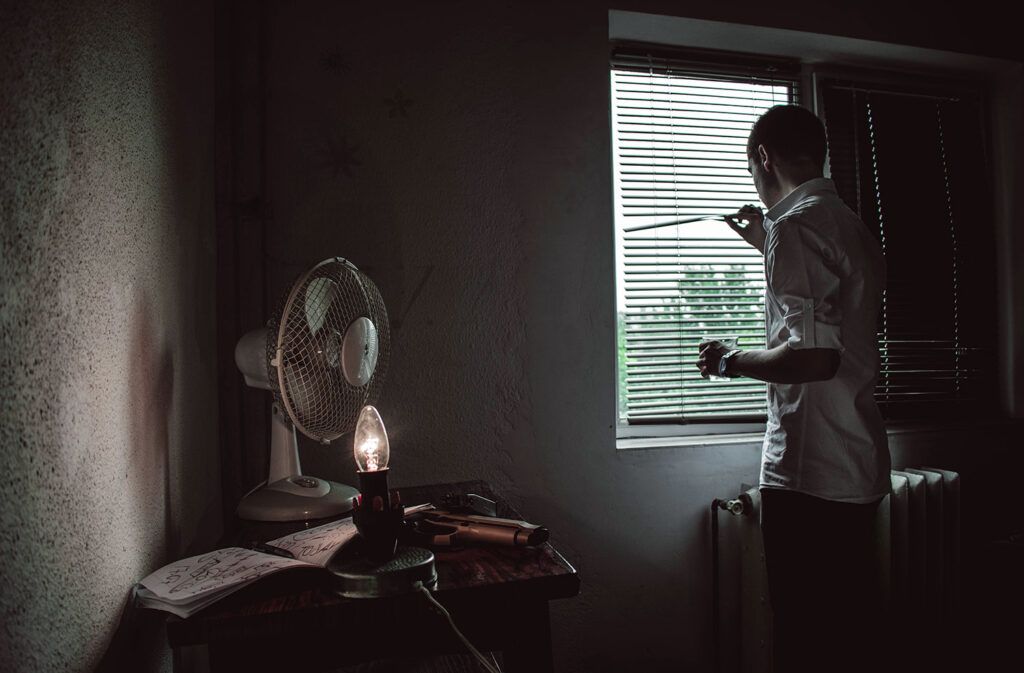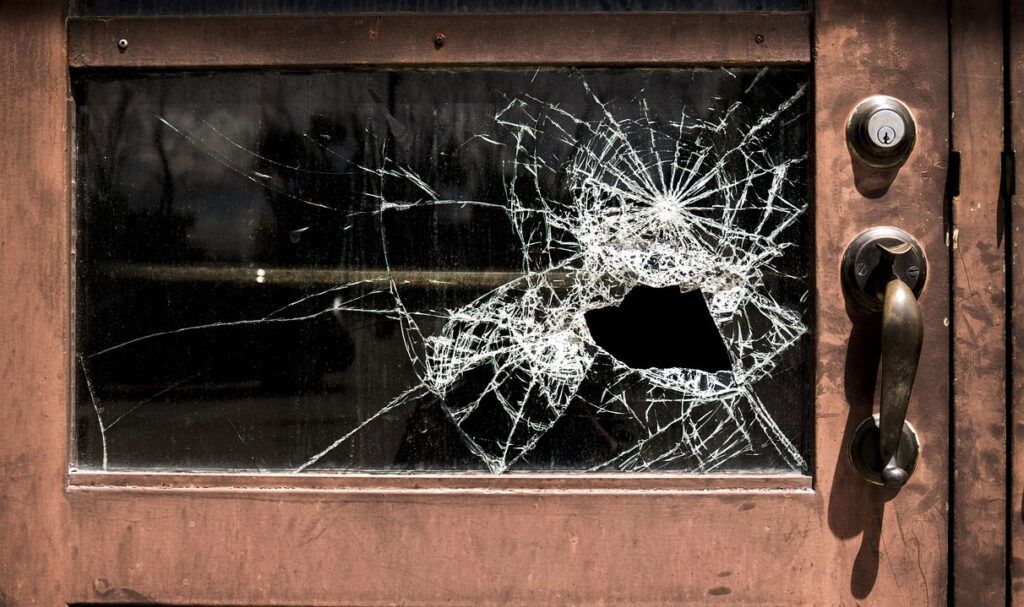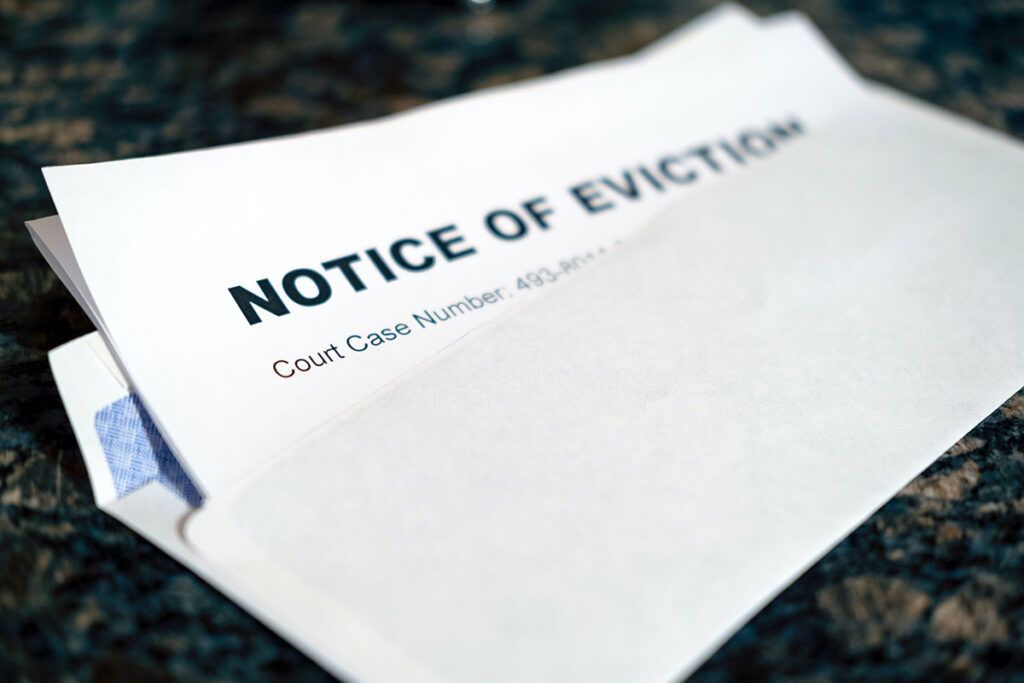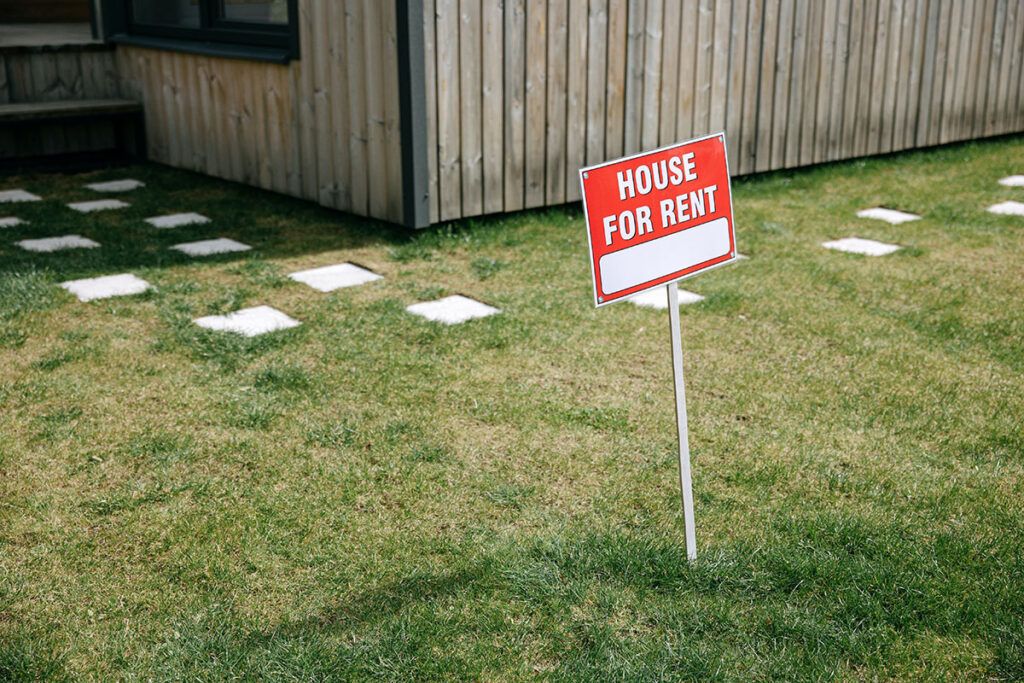The Growing Need for Squatter Insurance

Vacation home ownership and rentals can be a good source of passive income for many people. However, it can also bring unexpected challenges in the form of uninvited guests known as squatters.
These unauthorized intruders exploit legal loopholes in an attempt to assert residency of unoccupied homes. Needless to say, this can cause significant financial losses in the form of legal fees and potential property damage.
Problems with squatters are increasing across America at an alarming rate. Many people are afraid to leave their homes unattended for fear of attracting a squatter.
What are homeowners supposed to do? You can call the police, but they will tell you to call a lawyer. The process of removing a squatter is time-consuming and costly.
What Is a Squatter?

A squatter is someone who knowingly and willingly occupies a property belonging to another person without their authority or permission – with the intent of living there or staying indefinitely.
A squatter can be anyone who refuses to vacate your rental property, even though they’ve stopped paying their rent, have a lapsed lease or rental agreement, or they’ve violated the terms of that agreement in some way. It’s quite possible that you never agreed to rent to them at all.
Squatting is often a crime of opportunity. Someone wants a place to stay, so they illegally enter and occupy a rental property.
Many squatters are sophisticated scam artists who understand property law and know how to use it to their advantage. In fact, many of today’s squatters knowingly and purposefully overstay their welcome at a rental property without the permission of the host or property owner.
Squatter Insurance
Many homeowners reach out to their insurance companies for help. Online searches for “squatter insurance” and “squatters coverage” are at an all-time high. Which raises the question: Where can homeowners purchase squatter insurance? Does squatters coverage even exist? And what does it cover?
There are several types of losses that a squatters insurance policy can help protect against – if you can find an insurance company willing to offer it.
- Lost Income
- Legal Expenses
- Court Costs
- Sheriff Fees
- Property Damage
- Property Turnover Costs
Where to Buy Squatter Insurance for Your Home
We reached out to several high-profile insurance companies about squatter insurance, only to come up empty handed. As it turns out, insurance companies are very reluctant to include squatters coverage with the homeowners insurance plans.
Proper Insurance - Anti-Squatting Coverage

Squatter insurance is currently only offered by a limited number of insurance companies. For example, Proper Insurance has developed a first-of-its-kind type of coverage, which can be added to a client’s existing coverage for a small premium or purchased for new clients as part of their policy-development process.
Squatter Insurance coverage from Proper is designed to address two major concerns: lost rental income and legal expenses.
- $10,000 coverage for lost rental income
- $5,000 coverage for legal expenses
If a squatter occupies your property, the normal eviction process can take anywhere from 30 to 90 days. During this time, you typically won’t receive rent, and dealing with the legal process can be a drain on both time and resources. Proper’s insurance offers up to $10,000 to cover lost rental income, giving you the financial support you need to work through this challenging situation.
Legal fees are another big worry when dealing with squatters. Tenant rights and squatting laws are complicated, and hiring an attorney can be expensive. Proper’s Squatter Insurance includes up to $5,000 to cover these legal expenses. This means you can quickly seek legal advice or hire an attorney to get the squatter removed as swiftly as possible.
Proper’s short-term rental insurance program is a groundbreaking approach to a real problem faced by many homeowners. With their coverage, you can rent your property with confidence, knowing that you’re protected against the unexpected challenges that squatters can present.
For more information on how Proper can help you safeguard your rental income, call 888-631-6680. It’s a smart move to take advantage of this unique insurance offering designed to fit your needs.
What Does Squatters Insurance Cover?

Now let’s take a closer look at some of the ways a squatters insurance policy can help protect you and your home.
Lost Income
By some estimates, the process to have a squatter removed from your property may take anywhere from 60 to 90 days – and during this time, you’ll be unable to rent your vacation home. Lost income associated with removing a squatter may actually be the largest expense associated with clearing your rental property.
An anti-squatting policy would help recoup any lost income you experience as you take the necessary steps to remove a squatter from your property. The eviction process is often lengthy and stressful, and every day a squatter remains in your home is a day you can’t rent it to someone else.
Legal Expenses
In addition, if someone refuses to either leave your property or pay rent, you may need legal support to ensure that they leave. In many cases, lawyers will charge hundreds of dollars per billable hour to handle your case. These expenses can mount quickly, so having an anti-squatting policy in place can help you recover some of these fees if you are in a position to need legal support.
Court Costs
In addition to costs associated with retaining legal counsel, you may also need to pay various court fees for filings related to removing a squatter from your property. These fees vary widely depending on your state. A squatters policy may help you recoup some of these costs associated with regaining the ability to rent your vacation home.
Sheriff Fees
Chances are that if you’re moving forward with an eviction, you’ll need your local sheriff’s office to serve the official eviction notice. It’s never a good idea to try to force a squatter to leave your property on your own. It’s also important to note that your local law enforcement officials will not remove a squatter until you have received a decision in your favor from a court. At that point, some local officials will remove the squatter immediately, while in other areas, you’ll need to present the court decision to law enforcement officials before they will make a move. It’s important to find out in advance what you’ll need to do. Sometimes you may be required to pay fees associated with this service.
Property Damage

In some cases, people staying in your home without permission and without paying appropriate rent may also cause damage during their stay. Without a squatters insurance policy in place, you’re on the hook to pay for any damage squatters may have caused while occupying your rental property. That means working with contractors and other professionals to make sure repairs are completed appropriately and safely.
You may also have to deal with additional loss of rental income while repairs are being made. Even if a squatter was respectful of your home and caused no major damage, you’ll still incur cleaning costs associated with turning over the rental property for the next tenant. After all, it’s unlikely that someone being forced to vacate your property would put a lot of effort into cleaning it before they leave.
In some cases, tenants may leave their personal belongings behind – depending on the law in your state, these possessions may have to be removed and/or safely stored. In some cases, you may be required to spend the necessary money to safely and properly dispose of electronics, large/bulky items and even hazardous materials.
Property Turnover Costs
Once you have a squatter evicted and have completed any necessary repairs to your property, it’s time to rent it out again and recoup some of your lost income. There will be costs associated with this process as well, including marketing/promoting your vacation rental. In addition, you may be subject to HOA dues and property management fees that typically would be covered by rent. By some estimates, property turnover costs could run around $1,750.
Vacant Home Insurance vs Squatting Insurance
Some homeowners may believe that having a vacant home insurance policy in place is the same as being protected against squatters – but that simply isn’t the case.
| Vacant Home Insurance Coverage | Squatter Insurance Coverage |
| ✅ Property Damage | ✅ Property Damage |
| ✅ Lost Rental Income | |
| ✅ Legal Fees |
Vacant Home Insurance
A vacant home insurance policy is designed to protect against losses that occur with a property that has been vacant for 30 days or more. Usually when a home is insured as “vacant,” that means all personal belongings have been removed, and the utilities typically are turned off to the property. It is considered unused. For example, the home may have been sold, but a new family isn’t scheduled to move in for a few months.
A vacant home, in most cases, is one in which no one is around to keep an eye on it. So, a vacant home policy typically protects against losses associated with theft, vandalism, damage from weather-related incidents like lightning, hail or wind, burst pipes and other incidents that may damage a home when no one is around to check on it.
This varies pretty dramatically from a squatters insurance policy, which protects you specifically from financial liability associated with someone refusing to leave your property and/or occupying it without your knowledge or permission.
What Are Squatters Rights?

Squatters Rights is the common term used to describe adverse possession laws, which vary by state. These laws basically allow a squatter to use or inhabit another person’s property as long as the lawful owner doesn’t take any legal action against the squatter, up to and including eviction.
Adverse possession laws, in many cases, allow someone who moves into a property and possesses it in an open and obvious manner to potentially gain legal ownership of the property after a certain period of time. It might sound crazy, but it’s true. The guiding philosophy behind tenant rights is to discourage the practice of allowing properties to go unused for long periods of time.
It’s important to check what adverse possession laws entail in your particular state. In some states, tenant status may kick in at 27 days. You’ll find that in many cases, property owners who list their homes for rent often cap their rental agreements at less than 30 days, in part to guard against squatters who try to establish tenants’ rights.
Here’s the kicker: Once a squatter claims tenant status, you can’t just make them leave. You have to go through the full legal eviction process. And in addition to occupying your property for a long enough period of time, a squatter can also establish residency through actions like setting up utilities in their name and using your home as their primary mailing address. In some states, a squatter may be required to show that they have paid property taxes on your home in order to be classified as a tenant.
Here’s another important distinction: squatters often are confused with trespassers, but the key legal difference between the two is how long someone is present on your property. While a trespasser may enter your property without your permission and have no legal right to be there, they don’t typically stick around for long.
A squatter, on the other hand, enters your property with the express goal of staying there long enough to gain status as a tenant.
What Should I Do if I Have a Squatter?

If you believe you have a squatter on your property, it’s important to act quickly. If you have a squatter-prevention policy, you should also get in touch with your insurance company immediately to notify them of the situation and potentially file a claim.
File a Writ of Possession
Your first step to remove a squatter is to file a writ of possession or unlawful detainer. This is often effective against squatters who are attempting to establish tenant status, this is often effective. To make this move work, you’ll need to show that there is no lease currently in place or that any previous lease has expired. This proves that the squatter has no legal right to occupy your property.
Hire an Attorney
You may want to seek legal counsel at this point. A qualified and knowledgeable attorney who is familiar with eviction proceedings can help you navigate the process and get rid of your squatter as soon as possible.
An attorney can also help you begin the formal eviction process by legally informing your squatter that they do not have permission to occupy the property and should vacate it immediately. Make sure you keep documentation of all correspondence with the squatter, which may prove invaluable for your insurance claim and/or any legal proceedings. This includes your original rental agreement, along with any messages between you and your renter, including those through the Airbnb or other messaging platform, texts, emails, photos, etc.
Look for Warning Signs
Watch for certain red flags when renting your vacation property. Those who intend to take up residence on a property often exhibit some of the same behaviors. If you’re listing a property to rent, be careful about renting to individuals who have incomplete profiles or who have created their profiles immediately before reaching out to rent your property.
Accept Only Verified Renters
Steer clear of renters who have received poor ratings or reviews from other property owners or hosts. In fact, it’s a good practice to accept reservations only from Airbnb renters who are verified, meaning their profile features the verified badge next to their name. Potential renters who are upfront about wanting to be able to stay longer than 30 days on your property may be problematic.
Run a Background Check
For an extra layer of protection, you can use verification services like safely.com, which screens for convicted felons and for renters who have been connected to property damage associated with other rental properties.
Some property owners have also found some level of success by having their renters sign short-term rental contracts that clearly spell out the terms of the rental. While this might not prevent someone from squatting, it does strengthen your legal claim if you find yourself needing to have a renter evicted.
Charge a Security Deposit
Charging a security deposit is another way you can help protect against squatters. Most people who plan to stay on your property past their rental term are hoping to do so free of charge, so they typically are less likely to fork over a hefty security deposit that they won’t get back.
America’s Growing Need for Squatter Insurance

Many property owners never experience the frustration of dealing with a squatter – but with the practice of squatting evidently on the rise, it’s smart to be prepared for the challenges an unwanted tenant can bring. Dealing with a squatter can be a long, frustrating and expensive process, so having a plan in place to quickly and efficiently evict them with as little financial loss as possible behooves you and protects your rental property business.
While few insurance companies offer anti-squatting insurance today, you’d be wise to connect with the companies like Proper Insurance who can provide protection against squatters.
Vacation rentals and Airbnb listings are booming across the U.S. as travelers increasingly seek personalized experiences over traditional hotels. Property owners recognize the potential for earning passive income, and the internet has made it easy to make reservations and manage booking.
Renting out your vacation home sounds like a smart business plan. Unfortunately, some bad actors have also entered the scene, renting properties and staying beyond the terms of their rental agreement without paying. Some may purposefully intend to stay long enough to establish tenants’ rights in the state in which the rental property is located – which can bring severe financial challenges to the homeowner. And many squatters simply take over an empty property if they find one unoccupied.
Landlords and short-term renters should reach out to lawmakers and mainstream insurance companies to advocate for squatter insurance coverage with their home or property insurance. With effective squatter-prevention insurance policies, homeowners could better protect their unoccupied homes and rental properties, avoiding many of the growing issues caused by squatters.